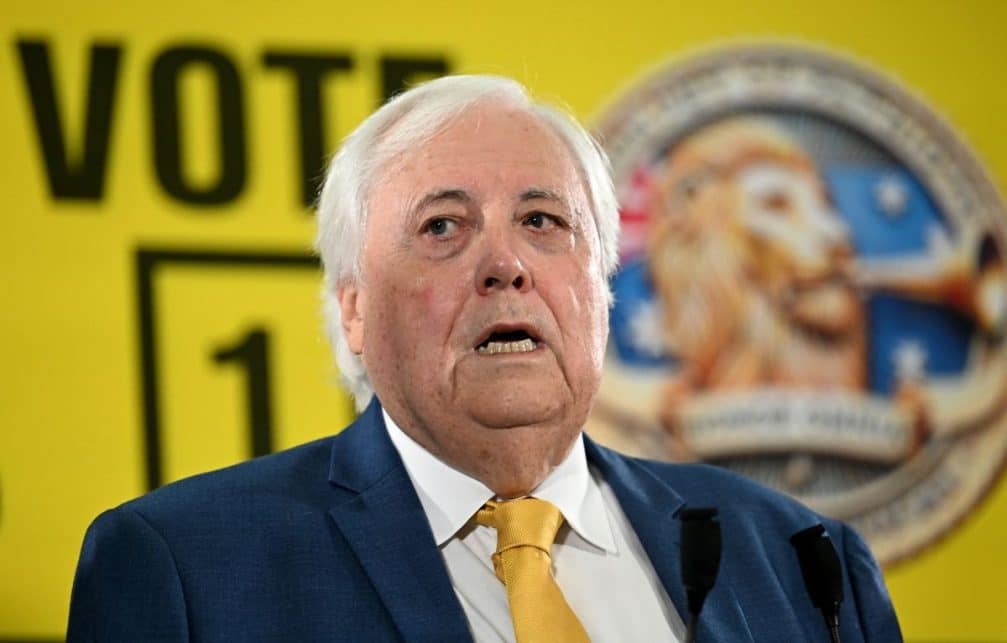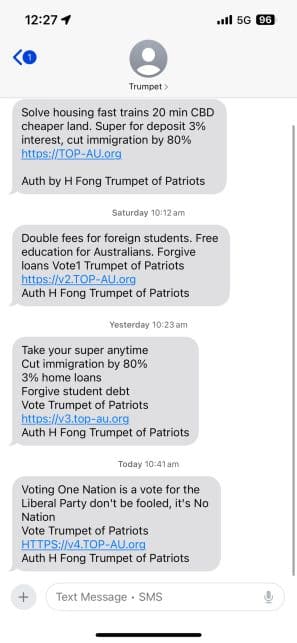If you’ve received an unexpected political text message during Australia’s federal election campaign, don’t panic — your phone number wasn’t leaked or sold to Clive Palmer’s “Trumpet of Patriots” party. And no, he’s not targeting you personally.
There’s actually a legal loophole in Australian law that allows political parties to send mass text messages — even without your permission.

Yes, It’s Legal — and You Can’t Unsubscribe
In Australia, political communication is exempt from the nation’s Spam and Privacy Acts. That means political parties can send out unsolicited calls, texts, and emails during election season, and there’s no legal requirement for them to offer an opt-out option.
According to Dr. Pandanus Petter, a research fellow at the Australian National University, the law prioritizes political free speech — even when it’s annoying.
“In a democracy, the constitution protects freedom of information and political communication,” Petter told 9news.com.au. “So you’re not allowed to pass laws that would block people from sharing political messages.”
Australia’s Spam Act of 2003 specifically states that messages from registered political parties are exempt from most rules that apply to regular telemarketing and email campaigns.

So Why Do They Do It?
If voters are bothered by these texts, why do political parties still use them? And are they even effective?
Petter says it’s all part of a strategy to reach as many voters as possible, similar to what you see with social media ads or campaign mailers in the U.S.
“Political parties will try anything to get their message across,” he said. “They’re on TikTok, podcasts, sending flyers — and yes, texts too. They’re constantly trying to find out what’s persuasive without being too irritating.”
As for figures like Clive Palmer, Petter says, “He probably has a different idea of where that line is.”
